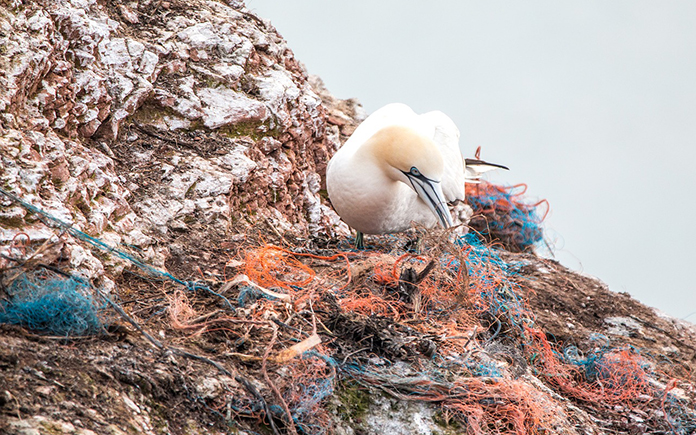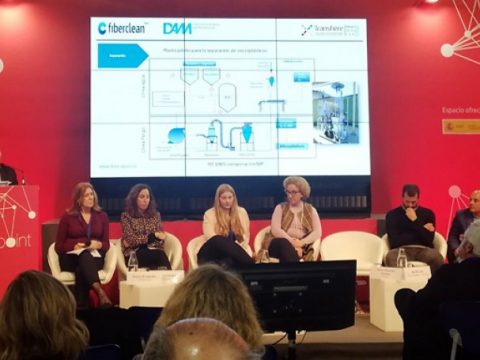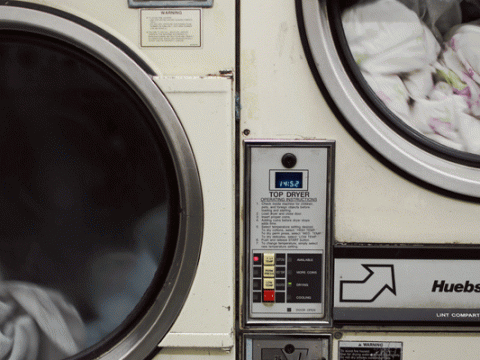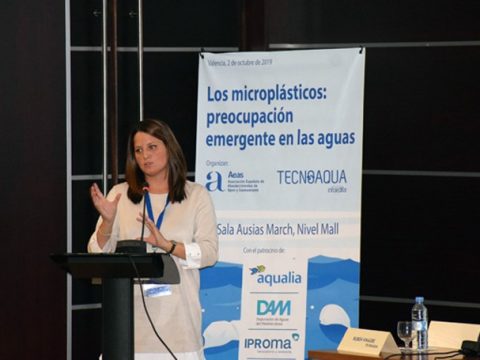
Polysistec, 100% involved in the Fiberclean Project
28 February 2019
J. Sánchez: “FIBERCLEAN will help reduce the dumping of microplastics into rivers, seas or lakes”
7 June 2019- Textil Santanderina leads a project called Fiberclean, which wants to reduce the emission of microfibers in its manufacturing processes for fabrics and garments.
Marine fauna constantly suffers from human-caused pollution. Microplastics already account for 80% of marine debris, and there seems to be no solution to this problem. But the effects produced in advance can be mitigated. And with success. You just have to “investigate” the tissues that surround us. That is the objective of Fiberclean, a sustainable project led by Textil Santanderina that aims to reduce the emission of microfibers through the manufacturing chain and in the useful life of fabrics and garments.
The problem is known, above all, in the world of fabrics, formed, among other materials, by microplastics (chosen word of the year by the Fundación del Español Urgente). With Fiberclean they intend to block, as far as possible, their useful life, as well as to contain and quantify them by bringing together the entire textile value chain: those who produce, those who sell, those who purify and manage the water … In fact , have managed to bring together “manufacturers of filaments, yarns and fabrics; manufacturers of textile and washing auxiliaries, manufacturers of washing machines and substance detectors, and purification companies, closing the life cycle of the textile chain. In addition, to have the support of two textile technology centers and a university to evaluate the results”, underline from the Cabezón de la Sal company.
Juan Marcos Sanz, director of R&D at Textil Santanderina, explains to us what the role of his company is: “we, apart from leading and marking lines and work programs (such as research on new fibers, research on advanced washing and production of manufacturing systems), we are leaders in the treatment of fabrics and yarns, as well as in the validation of production processes”.
According to Sanz, the work of the Cantabrian corporation in Fiberclean is to quantify, at each step, “how to make recommendations, in addition to seeing how the washing can be”. Likewise, its task is also to “identify the types of garment that pollute the least, include polymeric additives that adhere to all types of fibers, analyze knitted and openwork fabrics …”. The results are not yet decisive or conclusive –this is the second of the four years that the project will last–, but, although they do not rule out anything, they do recognize that “thermal shirts or polar linings are the ones with the most microfibers and, therefore , the ones that pollute the most ”.
At this time, the Fiberclean project is closely associated with environmental impact, which, in turn, is increasingly closer to public awareness. Thus, initiatives like these, in addition to increasing its social value as a company, contribute to generating added value for its products: “we can anticipate –said Sanz– that we are taking steps towards ensuring that this impact brand, Fiberclean, can make consumers identify these very respectful fabrics”.
In any case, it is not the only sustainable project in which Textil Santanderina is involved. “In some way – says Sanz – we have been aligned with sustainability for many years”. For example, “the Seaqual brand, ours, sells recycled polyester from marine litter. I insist, we have been doing it for quite some time”. This sustainable “air” also arises from the need to anticipate regulations to ensure responsibility with the environment, which is why there are more and more sustainable products.
“And an R&D department cannot be oblivious to this. We always work in accordance with European and Spanish regulations. All the investigations that we carry out are, to a greater or lesser extent, related to the environment”. And, as Sanz says, they have indicators before carrying out the projects, “and if we see that they are not sustainable or do not reduce the environmental impact, we stop everything. We have already had to give up some initiatives due to this issue”.




